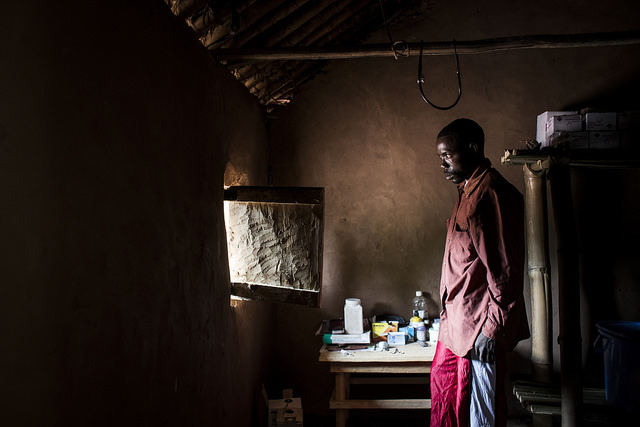Start Network’s Luke Caley discusses the progress of the Start Fund Crisis Anticipation Window, one year on from its launch.
The humanitarian sector has been calling for earlier action for decades, and these calls have been growing louder since the late response to the 2011 famine in East Africa. Up to 100,000 people died during this famine, deaths that could have been avoided. We shouldn’t have to wait until a disaster strikes before taking any action.
The launch of the Crisis Anticipation Window in 2016, allowed our members to access a global pot dedicated to early action for the first time. When agencies can see a disaster coming, they can now access vital resources to act early and mitigate harm and loss.
Over the past year we have been building our capacity to anticipate crises, by creating systems and processes for the network to respond early when a crisis is coming, based on information about shifts in risk. Since its launch in November 2016, the anticipation window represented 10% of all Start Fund alerts, indicating that our members are becoming more comfortable with the approach.
This was made possible by the trust of our donors – allowing us to run with this new way of working – and through collaboration, bringing new expertise to aid analysis and decision-making. We know that this new approach is challenging, so we are making the effort to openly share our experiences with others - as we are today with the publication of the first annual report for the Anticipation Window.
In the report you can read examples of where the Start Fund Anticipation Window has been used. For example;
- the rapid melt of high levels of snowfall which led to increased risk of flash flooding and landslides in Tajikistan
- forecasted flooding of already extremely vulnerable populations in eastern Niger
- predicted electoral violence in Kenya.
The decisions about whether to release funding for these crises were difficult. Decision-makers grappled with issues which are becoming familiar, including fundamentally, how certain do we need to be before ‘pushing the button’ to act?
We are investing in three areas that will help members become more comfortable with this way of working and improve the way humanitarians take anticipatory action:
- Developing members’ understanding of how to use reliable forecasting information
- Build an evidence base of the value of early action
- Establishing a community of scientists and humanitarians to draw on their collective expertise.
We are starting to see other funders move in the same direction, with the Red Cross Disaster Relief Emergency Fund and UN Central Emergency Relief Fund both looking at how this works in practice. In turn, we took inspiration from the Red Cross Red Crescent Climate Centre for their innovative forecast-based-financing approach.
Start Network’s community of practice for anticipation
We set up a Forecast-based Warning, Analysis and Response Network (FOREWARN) to bring together people working on crisis anticipation, forecast-based and risk-based financing. It includes scientists from many disciplines (such as hazard modelling and behavioural economics) as well as humanitarians (such as preparedness and food security advisors) working for Start Network members, the UN and the Red Cross and donors. We want to align the way that each of these communities look at critical issues and to provide recommendations for anticipatory Start Fund alerts.
So, what next?
We expect 2018 to be a landmark year within the Start Network and for crisis anticipation. Members have agreed a bold new vision for the Start Network, with localisation, risk financing and collective innovation as the key elements for delivering a new humanitarian economy. Our membership will grow and diversify, and we will begin to develop local-led, self-governed hubs.
Within these hubs , FOREWARN will bring together national humanitarian organisations and forecasting information providers to work on analysis of risks, contingency planning and anticipatory programme design. We will aim to harmonise the work of these groups with national authorities, the UN, the Red Cross and other NGOs around crisis risk monitoring and management. At the national level FOREWARN groups will develop the structures and processes needed for reliable anticipatory action; at the global level collective experimentation and innovation will bring in new capability needed to make this approach effective.
We will continue to drive this agenda. Within the Start Fund, we expect to see more anticipatory alerts, providing us with experience of using forecasting information in humanitarian decision making, scenario-based project design, and collaborative risk analysis. We hope to see this approach becoming humanitarian ‘business as usual’.
Soon there will be no need for an ‘anticipation window’, because it will be normal for members to act on forecasting information to save lives and livelihoods.

